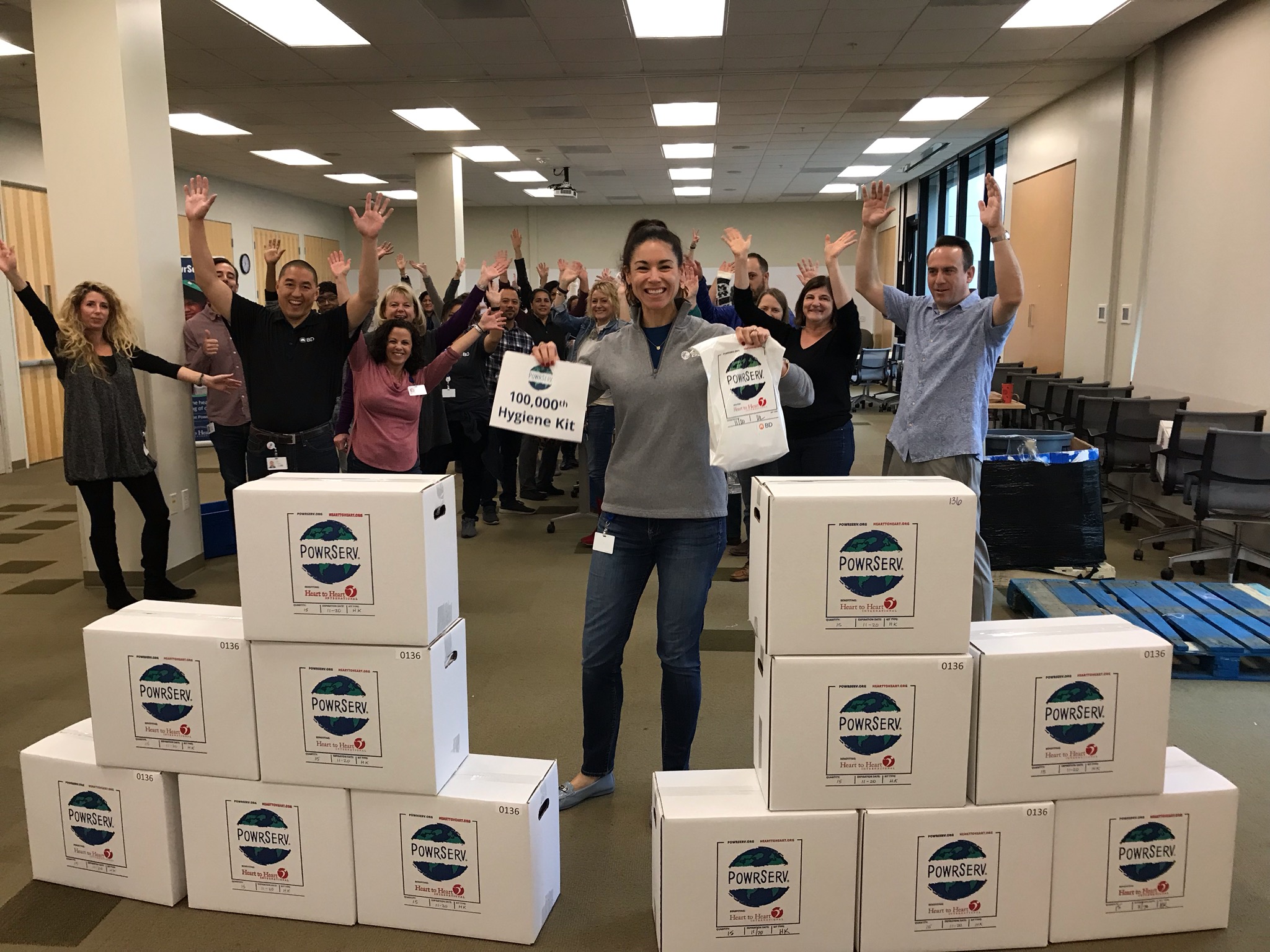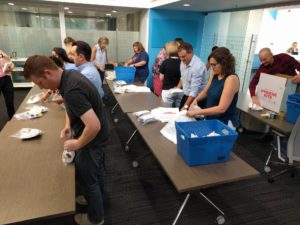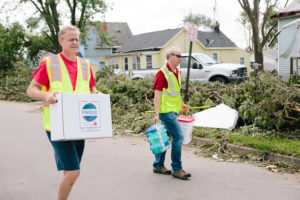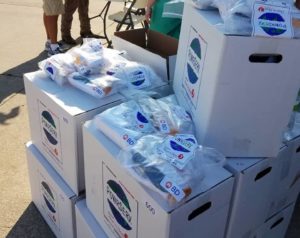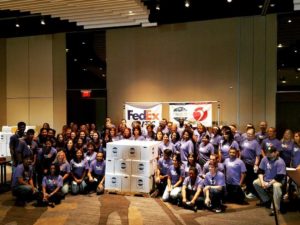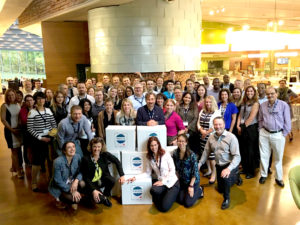Hygiene kits are a critical aspect to Heart to Heart International’s disaster responses. The kits provide essential hygiene items to people in the aftermath of a disaster or crisis.
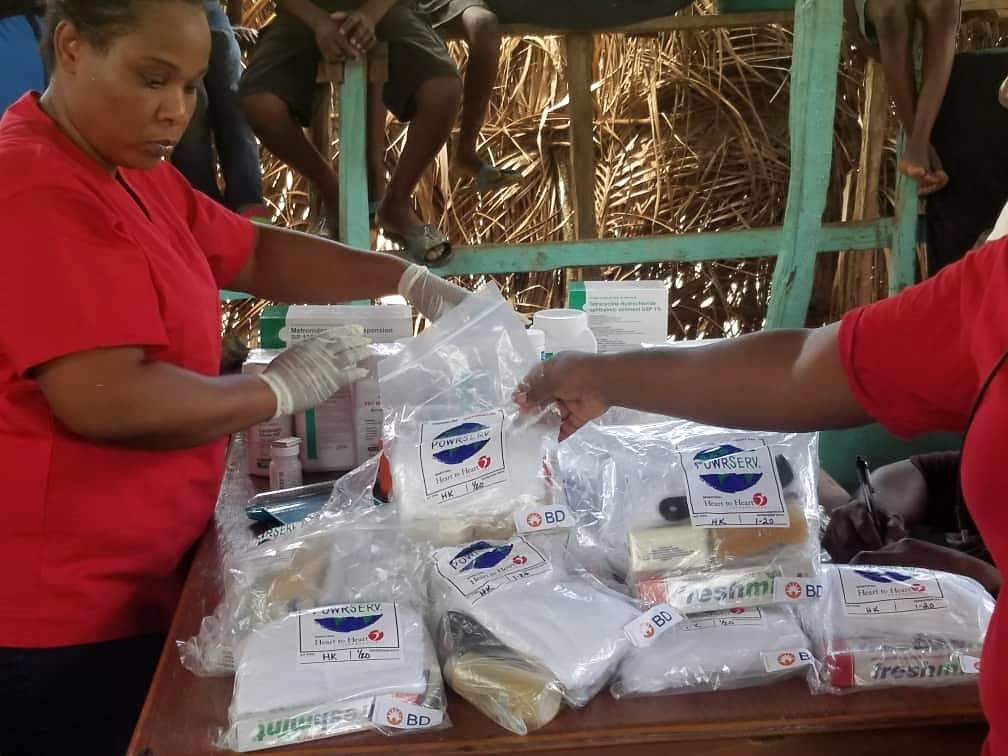 These kits are provided to our disaster response teams by the PowrServ program of HHI. Through this program, groups of volunteers are provided the opportunity to assemble hygiene kits as a team-building philanthropic experience.
These kits are provided to our disaster response teams by the PowrServ program of HHI. Through this program, groups of volunteers are provided the opportunity to assemble hygiene kits as a team-building philanthropic experience.
And last week, PowrServ hit a major milestone. Volunteers at an event at BD assembled the 100,000th kit of 2018. This is the largest number of kits built in a single year.
To make this happen, PowrServ has traveled around the U.S. and the world, including to Germany, the Bahamas, Canada, California, New Jersey, Tennessee, Maryland, Louisiana, Florida, Texas, Minnesota, Washington, Arizona, and Illinois for events in 2018. And every single one of the corporations, clubs, churches and schools who have assembled kits this year has helped us reach this goal.
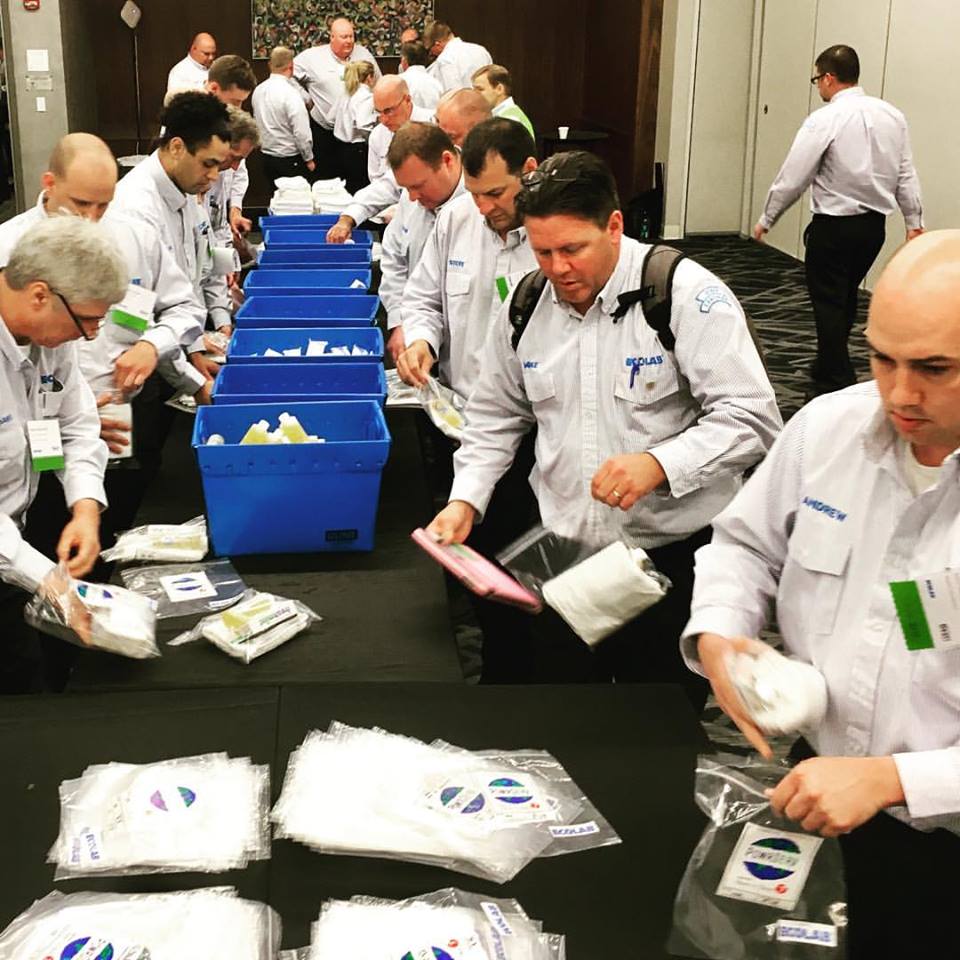 Because of everyone’s hard work, 100,000 people now have the basic necessities to help them start on the road to recovery after devastating loss. In 2018 alone, kits have been sent to, among others, Haiti for a women’s clinic, Puerto Rico after Hurricane Maria, Syrian refugee camps, Hawaii after Hurricane Lane, India after flooding, California after wildfires, North Carolina after Hurricane Florence, Florida after Hurricane Michael, Iowa after a tornado, Missouri after flooding, and New York to help children in need.
Because of everyone’s hard work, 100,000 people now have the basic necessities to help them start on the road to recovery after devastating loss. In 2018 alone, kits have been sent to, among others, Haiti for a women’s clinic, Puerto Rico after Hurricane Maria, Syrian refugee camps, Hawaii after Hurricane Lane, India after flooding, California after wildfires, North Carolina after Hurricane Florence, Florida after Hurricane Michael, Iowa after a tornado, Missouri after flooding, and New York to help children in need.
So, we want to send out a HUGE thank you to all our partners who have assembled hygiene kits in 2018, including: Henry Schein, Pfizer, Church of the Resurrection, AbbVie, Ecolab, Hillel International, FedEx, BD, Sanofi, the Kansas City Community, and many, many more. Your time and hard work has brought help and hope to people in need around the world. Thank you.
“Heart to Heart International’s personal hygiene kits are a staple of HHI’s response to disasters. These kits allow people to maintain their cleanliness and prevent the spread of infections. But, possibly just as important, these kits give disaster victims and displaced persons the tools to care for themselves and their appearance. Having this ability has been shown to improve a person’s outlook on their future as well as their participation in subsequent recovery efforts, both individually and within their communities. When we see a patient, we conduct the clinic visit and then offer a personal hygiene kit. You watch a person’s face light up and see their gratitude when they are given the kits. When everything else they own has been lost, these kits are reminders that people still care for them.” – Dr. Rick Randolph, Chief Medical Officer, Heart to Heart International

